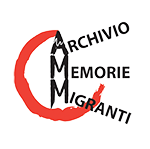Abandoned, ransacked, set on fire. Simple objects of use and affection seized from migrants, or lost during the chaotic phases of disembarkation, thrown haphazardly into landfills, transformed into piles of trash, torn to pieces: broken shoes, clothes, cigarette packs, crosses, compasses, books, papers, letters.
Precious testimonies, objects of memory and not of removal, to be preserved and studied as has been done in recent years thanks to the efforts of volunteers from Askavusa and now by the Municipality of Lampedusa and Linosa and the Harbor Master’s Office, united with us and others in creating the Dispersed Museum of Migrations on the island of Lampedusa. Currently, the project is suspended and under reconsideration.
Without forgetting the tragedy of the many who lose their lives at sea or who still suffer in reception centers turned into expulsion centers, the project aims to reverse the usual chronicle of emergencies and forced detentions to give voice to tens of thousands of people, men, women, and children, bearers of hopes, dreams, lives, and future ideas that have intertwined with ours, inspiring the idea of a possible shared destiny. Their testimonies, stories, traces—and those of those who emigrated from the island to other destinations, in Italy or abroad long before them—are a common asset for contemporary Italy that we have the duty to know and preserve to restore memory to the multiple exchanges and contaminations that have shaped our own process of forming as a Mediterranean country.
In this direction, in 2014, AMM was part of a promoting group of the campaign “Justice for the new desaparecidos,” for the establishment of a public opinion tribunal on the disappearances of migrants traveling to Europe.
Furthermore, together with CISP, Usigrai, and the Municipality of Lampedusa, we envision Lampedusa as a laboratory for the study, teaching, and understanding of our own roots, uniting the island’s residents and migrants in a path of reflection, sharing methods and sources, to trace the pathways, networks, intersections of ideals, and change. For this reason, we have developed common project guidelines and have jointly submitted, along with other local partners in Lampedusa, Malta, Athens, and Lesvos, an initial European project (“Europe for Citizens” 2014/2020).
This section of the site preserves the initial materials of the Dispersed Museum project and presents a series of materials, writings, and videos, on the open site of Lampedusa.
